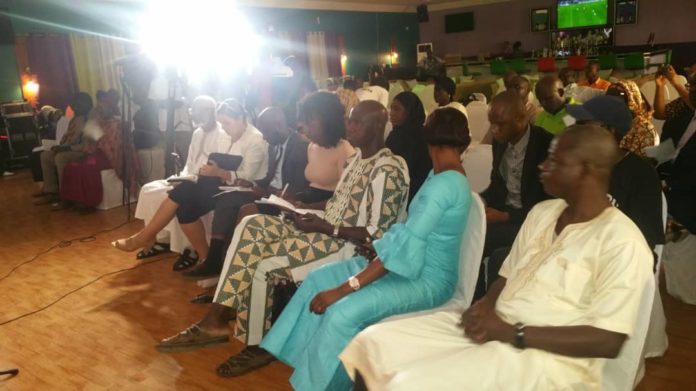Prof Pierre Gomez
Associate Professor of Comparative Literature
Dean, School of Arts and Sciences
The University of The Gambia
Brikama Campus, P.O. BOX: 3530
The Gambia
West Africa
I must hasten to say that I am very pleased to be associated with yet another history-making venture in a field closely related to my areas of expertise (comparative literature, culture & history). To me, today is very auspicious for two reasons, and these, I will share with you shortly.
Distinguished guests, ladies and gentlemen, I see today as a day of great reckoning in that I see history of September 1971 repeating itself. I believe it should not take long for a follower of the emergence and evolution of Gambian Literature to connect today’s event to the establishment of Ndaanan (a literary magazine) which resulted from a similar initiative as the one we are witnessing today.
Distinguished guests, ladies and gentlemen, it could be recalled that in September 1971, the Gambia’s Writers Club including Mr Swaebou Conateh, Mr Charles Jow, Mr Hassoum Ceesay Senior, Dr Lenries Wilfred Peters, Mr Gabriel John Roberts etc., produced the first volume of a literary publication (Ndaanan) to provide an outlet for all creative Gambian writing. Ndaanan provided a platform to simulate literary activities of all kinds and to provide an outlet for sharing Gambian talents in works such as short plays, essays, cartoons, photographs with commentary relating to pottery, carving, weaving and so on. For this reason, ladies and gentlemen, I count today as yet another in the history of our great nation.
The second virtue in this day is that it reminds us about the giant strides taken in the newspaper industry which have led us to this day. Our history has it that the business of sharing information through newspapers is inextricably linked with the history of writing in the Gambia. Newspapers such as:
Bathurst Times (1871);
Bathurst Observer the West African Gazette (1883);
The Gambia Intelligencer (1896);
In 1922, Edward Francis Small established a newspaper called The Gambia Outlook focusing on issues that addressed subjects relevant to national and workers’ interest and fighting for the struggle for independence. For the sake of emphasis, distinguished guests, ladies and gentlemen, I wish to reiterate that the newspaper had played a very significant role in the Gambia’s struggle for independence. In a documentary I produced in 2016 entitled Edward Francis Small: The Voice of Conscience, I have attempted to show how Edward Francis Small in his editorials to create civic consciousness in the Gambia of his time.
Between the period 1950’s to 1999, several newspaper houses stemmed up including the following:
1950’s, The Vanguard newspaper, edited by the late M.B. Jones;
1960’s, The Nation, edited by William Charles Dixon Colley;
Others include Foroyaa Newspaper, in 1987; Senegambia Newspaper, 1983; Daily Observer, 1993; The Point Newspaper, 1991; The Independent Newspaper, 1999; Daily News, 2009; Standard, 2010; The Voice, and many more.
Chairperson, distinguished guests, ladies and gentlemen, these alone prove that the work of an organic journalist is an essential ingredient in educating the masses. However, we must not lose sight of the fact that this sacred duty could be compromised when certain ethical issues are not put under check. Therefore, it is well in place for an institution of this kind to be put in place in order to provide professional guidance and functional coaching for young and emerging journalists to enable them avoid the pitfalls associated with the profession.
On that note, I sincerely thank the men and women whose efforts have brought us to this day and we hope that the association will live long to serve its purpose. We hope that it serves towards the betterment of society and not for negative or destructive ends. Having said that, I formally declare The Newspaper Publishers Association of The Gambia launched.
Thank you.




















